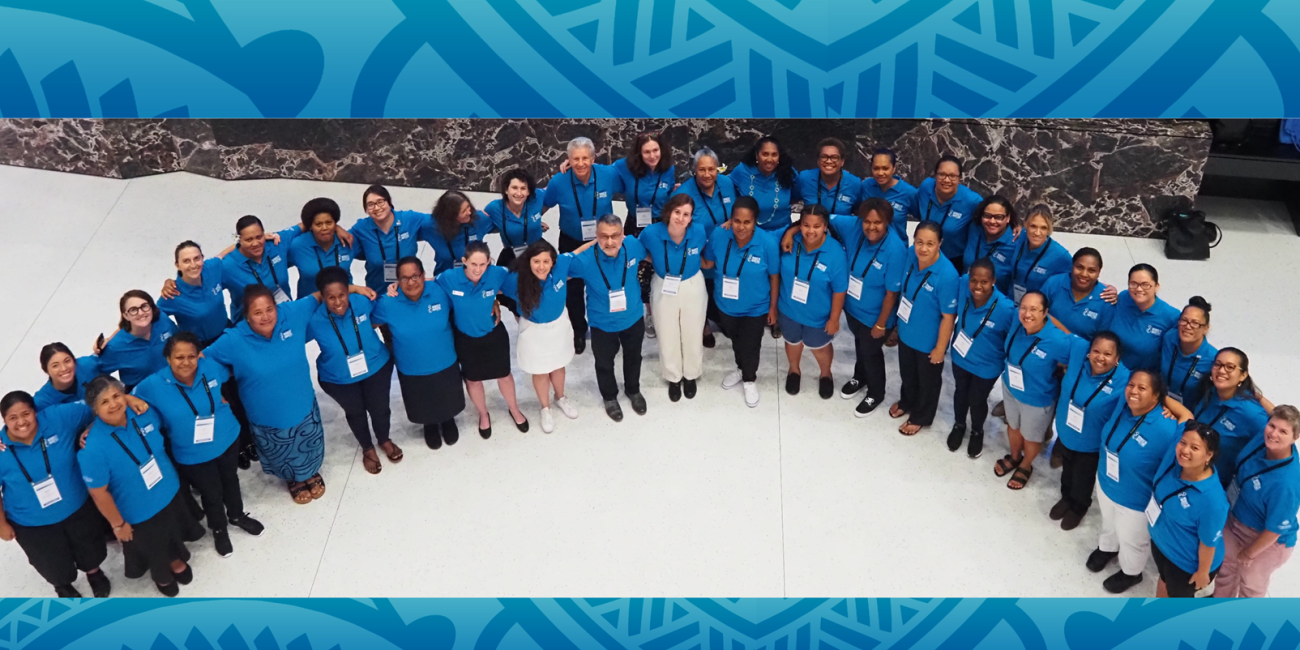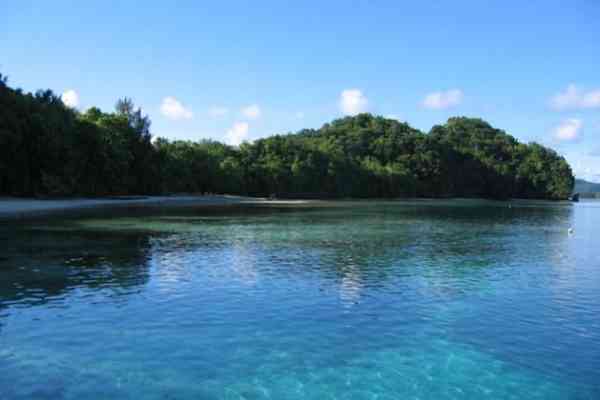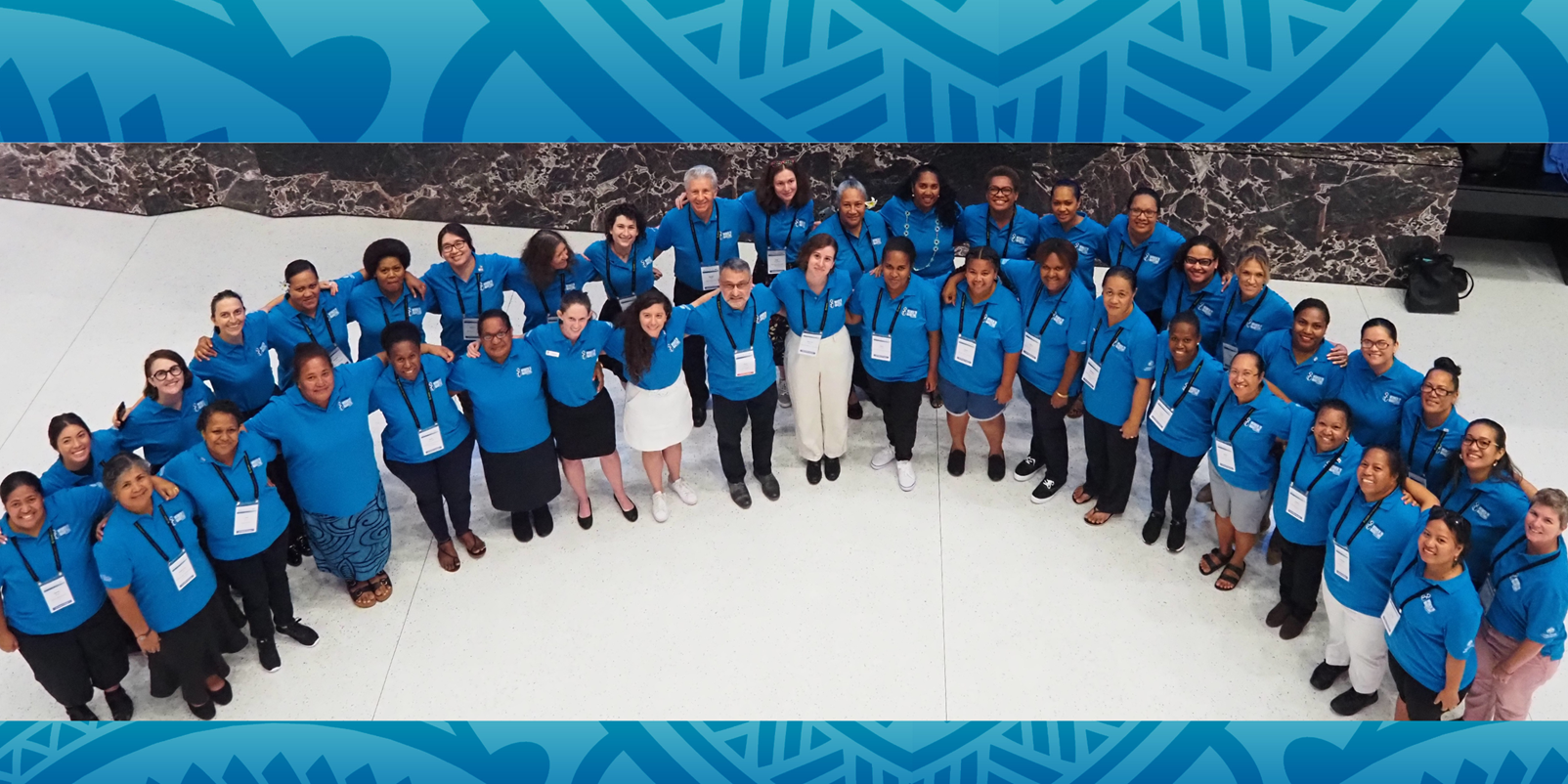
The maritime industry has been an integral part of global trade and commerce for centuries, connecting continents and providing a vital lifeline for economies around the world. However, it has also been an industry with a reputation for being male-dominated, hazardous, and lacking in diversity.
In the Pacific, women had a critical role in navigation that connected our people through great traditional canoes and voyages across our vast ocean. Women were the weavers of the sails of these canoes. The design developed by women in communities allowed these sailing crafts to navigate swiftly through the ocean and these sails woven by indigenous women in the Pacific are the blueprint for the modern sails we see today.
A wave of change is coursing through the maritime industry with the growing recognition of the need to create a more inclusive, sustainable, and safer industry. This change is being driven by several factors, including increased awareness of the environmental impact of shipping, the need for greater diversity and inclusion in the workforce, and the desire to improve safety and working conditions for women, both onshore and particularly, offshore.
Only 11 per cent of our maritime sector are women - that's about 1 in 10 of an estimated 16,000 workers. But we know when we have a diverse workforce, we make better decisions, so ensuring young women and girls in the Pacific can equitably work in the sector is a critical priority - The Pacific Community’s (SPC) Principal Strategic Lead for Pacific Women and Girls, Mereseini Rakuita has been supporting work to drive transformational change for women in the maritime sector in the Pacific.
One key area of focus in the maritime industry is diversity and inclusion. Historically, the maritime industry has been dominated by men, and there has been a lack of representation of women and other marginalized groups. With the importance of diversity in driving innovation and improving decision-making, many organisations are taking steps to increase diversity and create a more inclusive culture.
Earlier this year, 45 practitioners working in the maritime sector in the Pacific attended the 3rd Regional Pacific Women in Maritime Conference, jointly hosted by the Australian Government in partnership with the International Maritime Organization (IMO) and SPC, with additional support from SPC’s Pacific Women Lead Program. Representatives from 11 countries met to find genuine ways to progress access, safety, and diversity in the maritime sector through practical and nationally led solutions. As part of the meeting, the Pacific Women In Maritime Association (PacWIMA) Executive Committee meeting was held to endorse the new leadership in the region, with the recognition that more must be done to progress women’s access in the maritime sector.
Reports indicate 29% of progress under the Regional Strategy for Pacific Women in Maritime (2020-2024), has been achieved, with no allocated resources, led by national women in maritime organisations and supported by PacWIMA.
A commitment to drive the necessary financial, human, and innovative resources was made by the representatives along with a collective commitment to review and redesign the upcoming strategic direction of Pacific Women in Maritime that progresses national commitments.
The wave of change in the maritime industry is not an easy task and will require collective and concerted efforts from all stakeholders, including governments, industry associations, companies, the development sector, and individuals.
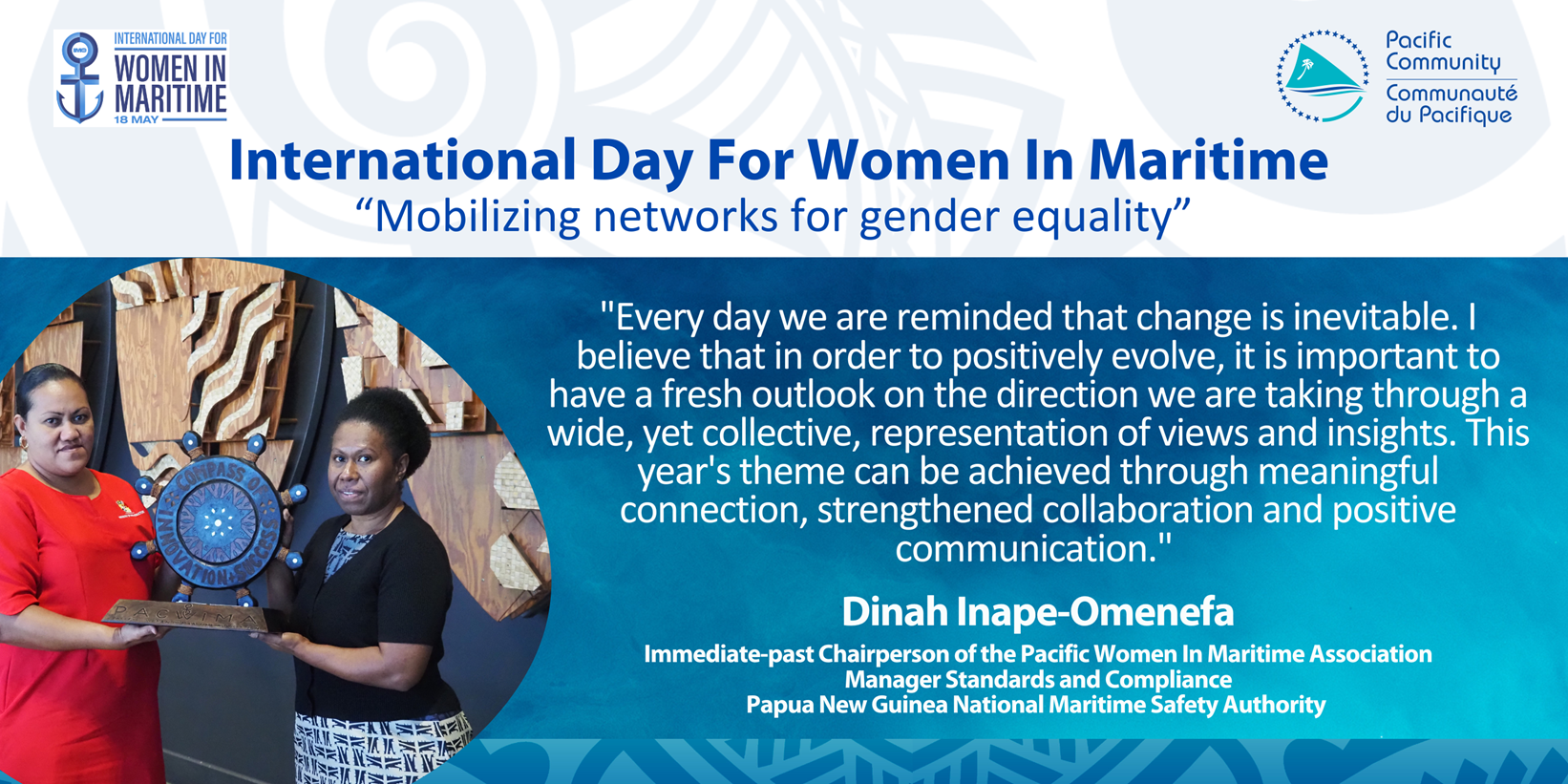
As a region, we share one Ocean. An ocean that provides the backbone for the livelihood of most Pacific peoples. To fully harness the potential that the Pacific Ocean holds for the well-being of Pacific people, it is imperative that all relevant sectors of the Pacific economy are given an equal opportunity and footing to partake in maritime activities.
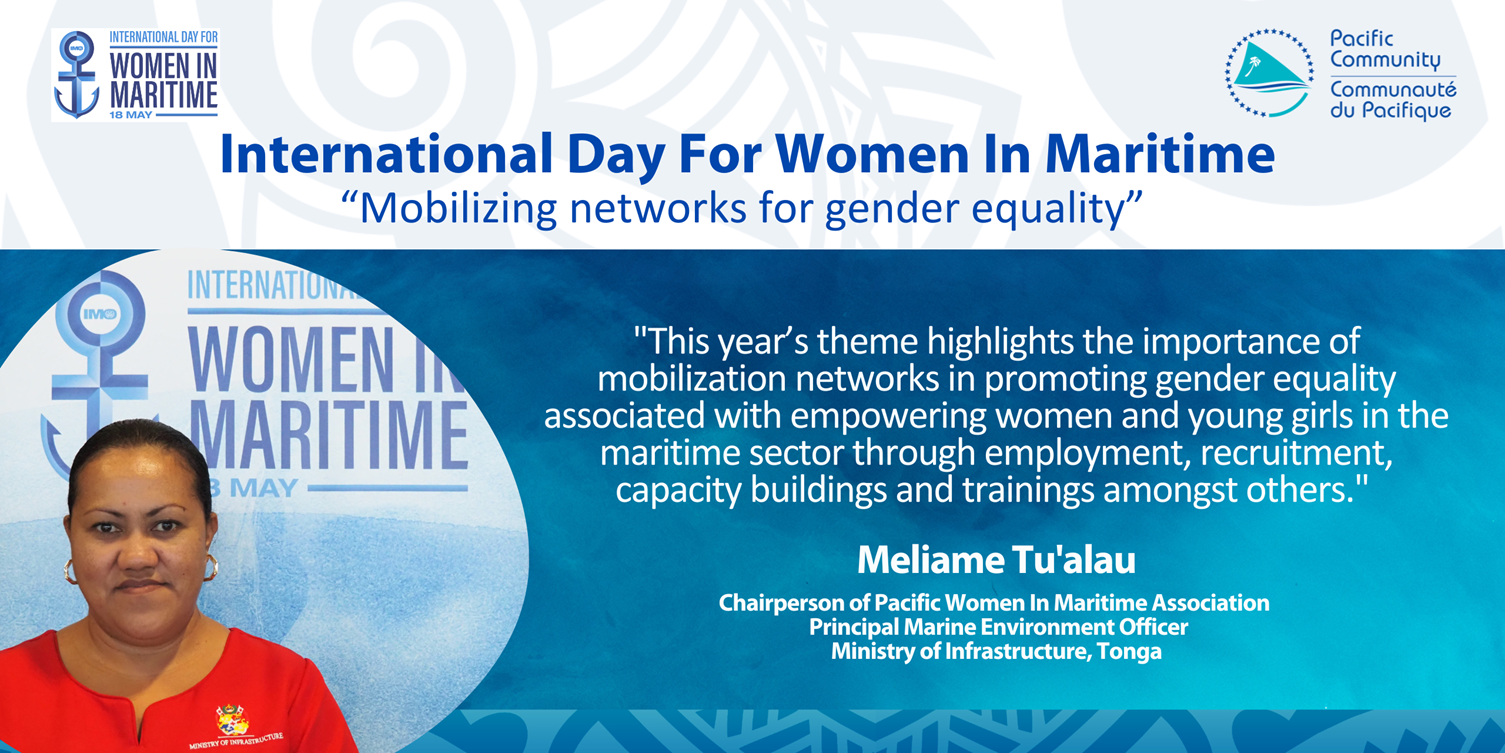
It is critical that we create a more sustainable, inclusive, and safe industry and SPC is proud to be supporting the shift led by member countries that opens access to one of our most dynamic economic and social sectors in the region.
